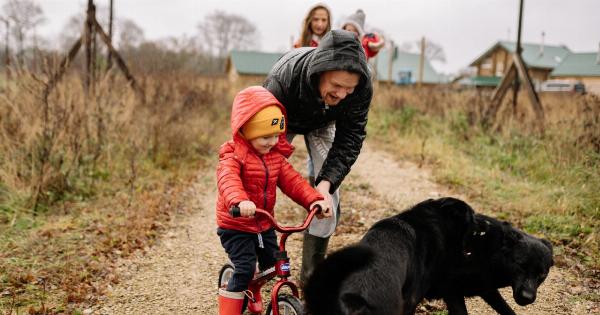As a dog owner, it’s important to understand that your furry friend’s behavior is a direct result of how you raise and train them.
Your dog’s behavior is not solely determined by their breed or genetics, but also by the kind of environment and care they receive. Avoiding certain common mistakes is essential for ensuring that your dog develops good behavior and habits.
Mistake #1: Inconsistent Rules and Boundaries
One of the most common mistakes dog owners make is failing to establish consistent rules and boundaries for their furry friends.
You might think that changing the rules depending on your mood or circumstances doesn’t matter much, but it actually confuses your dog. They cannot understand what behavior is acceptable and what’s not when the rules keep changing.
Hence, as a dog owner, you should establish clear boundaries and rules from the beginning and stick to them. Make sure all members of your household are on board and are consistent in enforcing the rules and expectations.
This will help your dog understand what’s expected of them, and they’ll be less likely to engage in negative behavior.
Mistake #2: Lack of Socialization
Many dog owners believe that their furry friends don’t need socialization training. However, socialization is crucial for dogs to develop good behavior and habits.
If your dog doesn’t have proper socialization training, they may develop aggressive behavior towards other dogs, people, or even objects in their surrounding.
Hence, it’s crucial to socialize your dog from an early age. Take them for walks in the park, introduce them to other friendly dogs, and allow them to meet new people. Proper socialization will help your dog become more confident, calm, and well-behaved.
Mistake #3: Ignoring Your Dog’s Needs
Dog ownership requires a sense of responsibility and care towards your furry friend. Many dog owners, however, fail to recognize their dog’s needs, leading to problems in behavior.
One typical mistake is failing to give enough exercise or physical activity to your furry friend.
All dogs have different exercise requirements; however, most of them need about an hour of exercise daily. Lack of physical exercise can lead to restlessness, boredom, and ultimately, bad behavior.
It’s essential to give your dog an opportunity to exercise, be it through walks, runs, or playing games at home.
Mistake #4: Using Punishment as a Primary Tool for Training
Dogs do not learn well through punishment. Punishing your dog can often lead to negative behavior such as fear, anxiety, aggression, or even destructive behavior.
The dog will not understand why they are being punished and will associate punishment with you.
In contrast, a better approach to training is using positive reinforcements such as treats, verbal praise, or affirmation.
When your dog understands the behavior expected of them, reward them positively- this will reinforce their good behavior and lead to more positive behavior in the future.
Mistake #5: Lack of Attention and Engagement
Dogs crave attention and interaction with their owners. Lack of attention and engagement from their owners can lead to negative behavior and habits.
If you leave your dog for extended periods without much interaction, they may develop behaviors such as excessive barking, chewing, or digging.
Hence, it’s crucial to give your dog enough time and attention to bond with them, provide them with playtime, and spend time training.
Playing with your dog also helps to strengthen your bond, while training them provides necessary mental stimulation that is key in developing good behavior and habits.

























